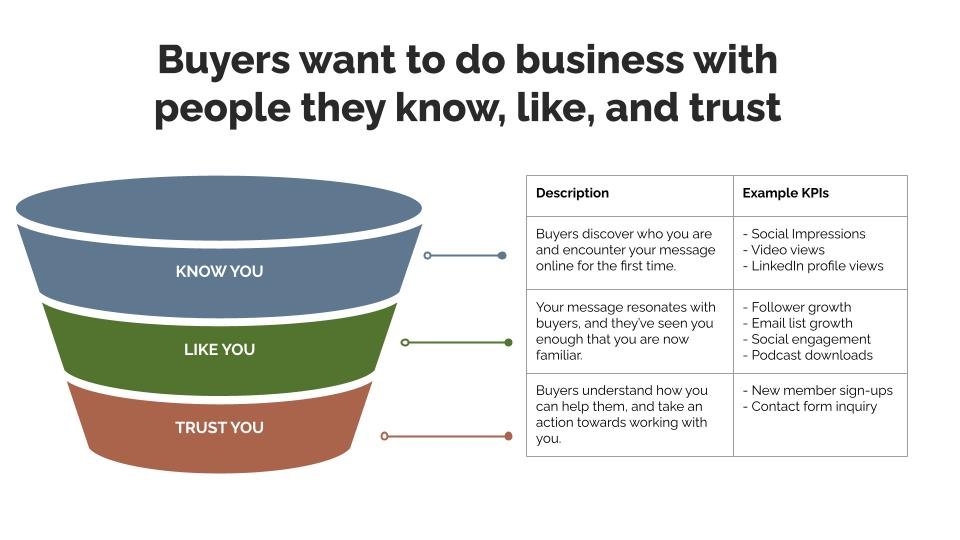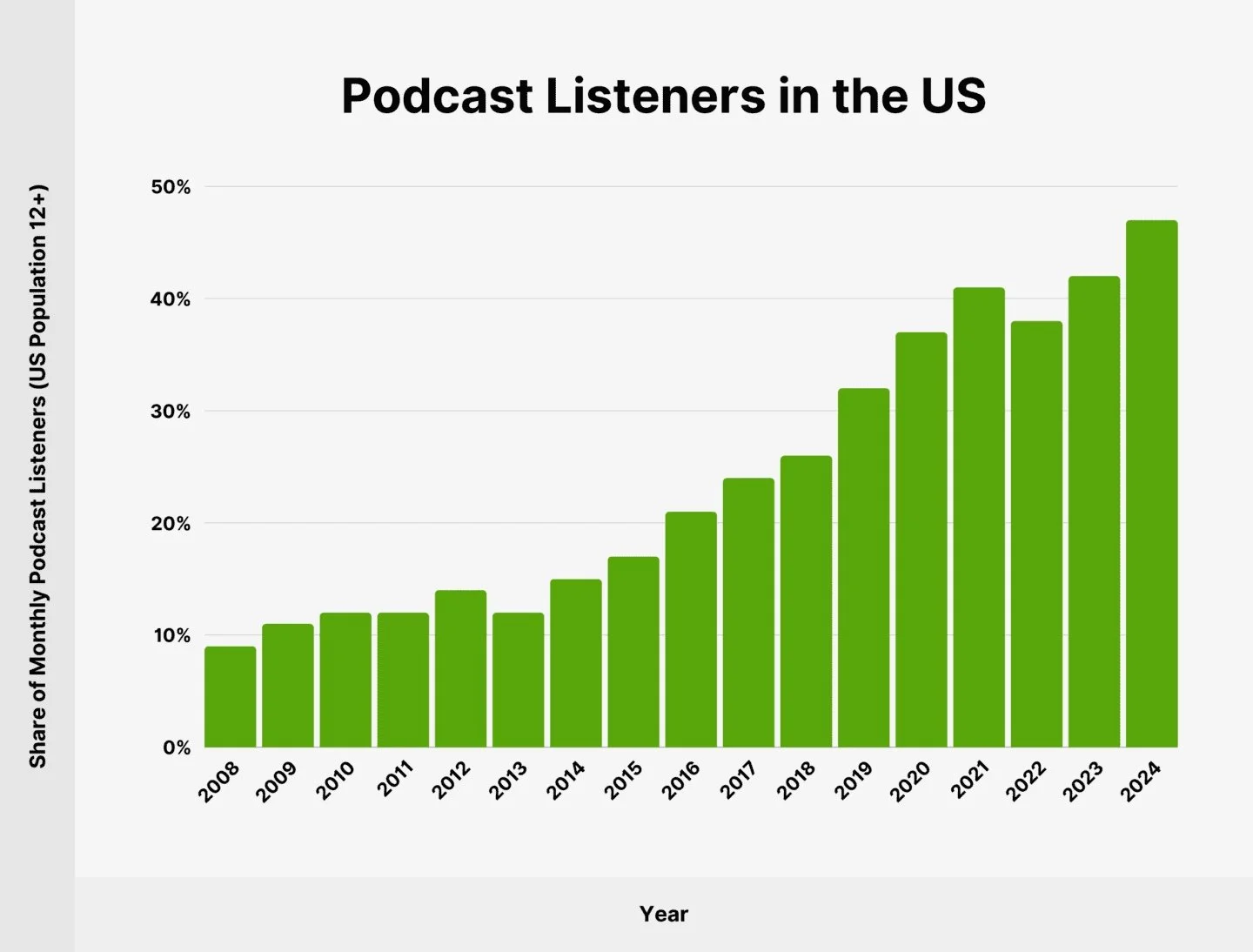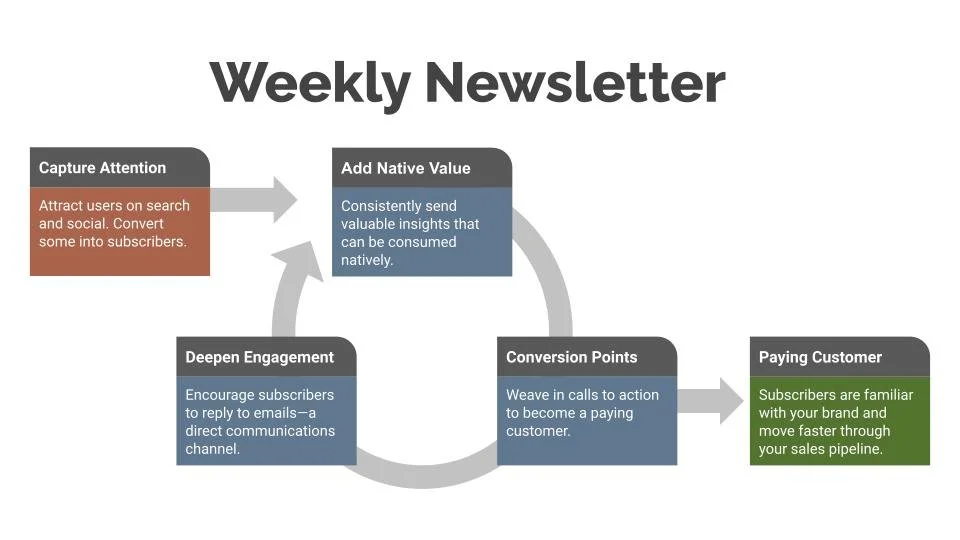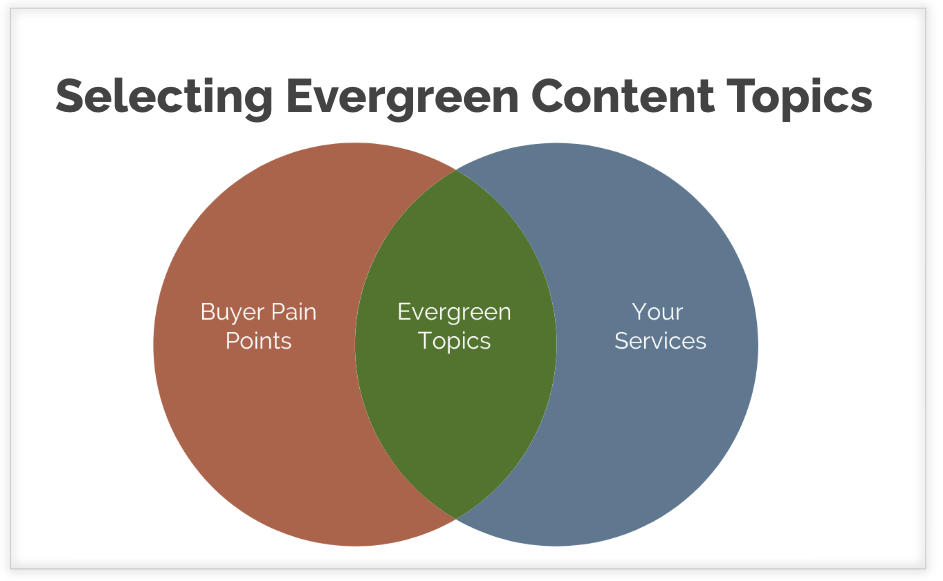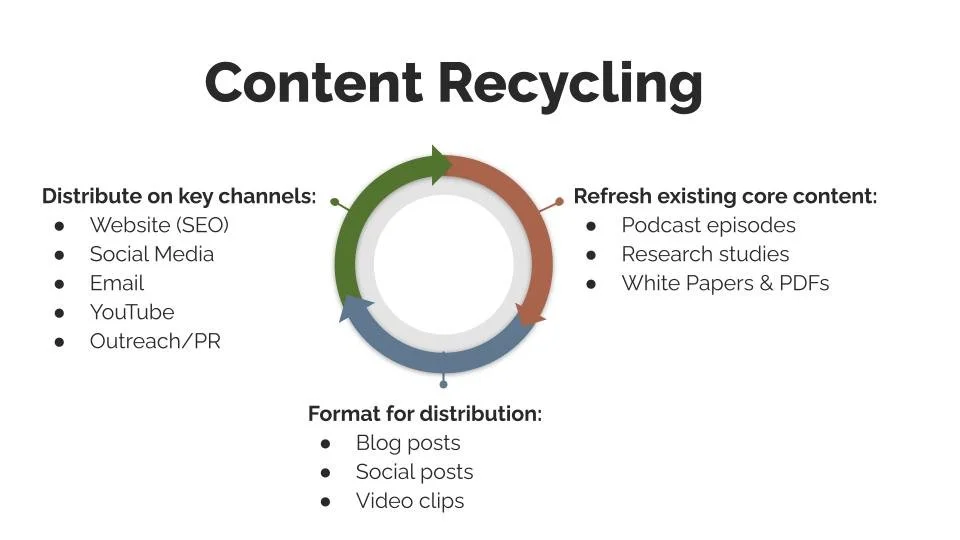Digital Marketing Strategy for Consulting Firms
In 2025, digital marketing strategy for consulting firms is essential to attract and retain clients. But how? What’s the best approach to bring your expertise-based business to market? This step-by-step framework is perfect for experts and firms who have exhausted their existing network and need to reach a broader audience to generate new business opportunities.
This doesn’t mean you need to become a well-known celebrity or go ‘viral’ like the CEO at the Coldplay concert. Instead, build visibility within a tight, focused slice of the market. Become well-known to the people who actually value your services.
Prefer video? Recently on Breaking BizDev, Mark and I walked through these concepts. Check it out here:
Begin with a deep understanding of your ideal buyers
Research is the foundation of digital marketing strategy for consulting firms. Before diving into a digital marketing plan, consulting firms must conduct market research to understand their target audience. This includes identifying the demographics and behaviors of potential clients and gathering insights on competitors and industry trends. Make sure you select the right B2B market research method, because this kind of research can take many forms.
However, research doesn’t have to be a structured, statistically significant project. You can incorporate research into your existing marketing programs. Here are a few examples:
If you host regular webinars, use live Q&As to surface questions from your target audience. Then, use these questions to create sales enablement content and thought leadership that answers the question in depth.
Interview your ideal clients on your podcast. Explore their challenges and business problems, and how they plan to go about solving it. A podcast interview can be useful qualitative research, but it also deepens your relationship and gives you a means of nurturing that prospect into a client down the road.
Look at search trends and long-tail keyword data to focus your content on topics likely to generate organic traffic. SERP analysis shows you a target word count, whether a page can rank for snippets, and whether you need elements like video.
Survey your audience. You can use simple survey tools to send to your email contacts, or you can create a LinkedIn poll. If you have enough people respond, you can use the results of your survey to create original content.
Build a framework to generate leads
Many consulting firms operate on a lead generation model. A firm website plays a critical role in providing information to prospective clients, but it doesn’t have to be a bottleneck your consulting firm’s digital marketing strategy.
In other words, you don’t have to force web traffic to go to your website anymore. This isn’t 2015. The old lead generation playbook doesn’t work like it used to.
That being said, the same principles still apply.
As I alluded to above, your expertise, thought leadership, and marketing content shouldn’t be confined to your website. Create, repurpose, and recycle your content on the channels your buyers use. For consulting firms, this could be LinkedIn, an email newsletter, a podcast,
One common way to visualize a digital marketing strategy for consulting firms is the classic funnel model. A ‘marketing funnel’ is a content marketing framework used to visualize web users based on where they are in their buying journey (illustrated below).
This rendition of the classic marketing funnel assigns specific intentions for each stage of the funnel. At the top, the focus is building familiarity. In the middle, it’s building rapport. At the bottom, trust.
Use a podcast as your source content
For consulting firms, digital marketing can be a significant investment. It’s important to create efficiencies where possible. The best way? Have a single source for creating marketing content. A podcast fits this bill perfectly because you can record once, then distribute that source content a dozen different ways.
Podcasts present a true blue ocean opportunity for consulting firms. According to a survey of over 2,700 users by LinkedIn, 44% of department heads, VPs, owners, and C-suites listen to podcasts. But it gets even better.
According to Podcast Industry Insights in only 15% (426,000) of podcasts were active, having released a new episode within the most recent 90 days. This number has been declining year-over-year as more podcasts fail to continue. In other words, consumers have fewer shows to pick from that regularly publish new content.
However, listenership continues to rise...
According to Edison Research, nearly 50% of U.S. population 12 and older listens to podcast audio at least monthly.
And guess what the 4th most popular genre is? Business shows!
Just by showing up and producing new episodes consistently, you have an opportunity to stand out in your niche. Worried because you don’t have an audience? Fear not! Learn how to start a podcast with no audience.
Podcasting can help you achieve a number of different outcomes, depending on your goals. Here are a few of the benefits I've witnessed managing shows for my clients:
Reduces time investment in marketing.
Accelerates your network growth.
Reduces travel to speaking gigs.
Reinforces thought leadership.
Positions you as an expert.
Creates endless content.
Builds trust at scale.
Shows personality.
Is a ton of fun.
Here is another content marketing framework that shows how a podcast can have a major impact on digital marketing strategy for consulting firms:
Whether you need help deciding between an audio vs video podcast, or you’re just curious and want to learn more, contact us to learn more about our podcast marketing services. Or, sign up for our newsletter to stay in touch:
Apply SEO best practices on all marketing channels (not just Google)
Search engine optimization (SEO) no longer only applies to your website. People expect (and use) search functionality on platforms like YouTube, Spotify, Apple Podcasts, LinkedIn, and even niche creator platforms like Kit and Substack.
Content published on any of these platforms can be optimized for search results by use of tags, keywords in titles, descriptions, alt text, file names, and more. When selecting channels to distribute content, be cautious not to over-extend your resources so much that you miss opportunities to maximize the marketing potential of each channel.
The role of search in a digital marketing strategy for consulting firms is no longer to drive traffic to your website. Instead, the goal is now to be found on whatever platform users are searching on.
Use LinkedIn for content distribution
Social media can be a powerful part of a digital marketing strategy for consulting firms. But which social channels should you be visible on?
As a professional platform with over 740 million users, LinkedIn is an essential tool for firms, experts, and consultants looking to build their brands and connect with potential clients.
So how should consultants take advantage?
Feed the platform the kind of content it wants to see. Based on the changes over the last few years, it seems like LinkedIn wants to be the “professional” version of TikTok or Instagram. The platform also seems to reward short-form video.
Consultants can lean in. Selfie videos are a great way to start, but if you have a podcast it makes this kind of content generation much, much easier.
For example, one of my clients is a financial services consultant who advises on M&A transactions of transportation companies. His show, the Ground Transportation Podcast, has a LinkedIn page that showcases short videos of him, his co-host, and their guests.
Engage prospects, leads, and clients with a weekly newsletter.
Email marketing is another effective tactic for consulting firms looking to nurture leads and stay top-of-mind with potential clients. Consulting firms can effectively communicate with their audience and drive leads by creating a targeted email list of potential clients and industry professionals and developing an email marketing plan.
Measuring and analyzing email marketing efforts' effectiveness is essential to optimize and continually improve results. Another way to engage prospects with email is with a weekly email newsletter.
Create evergreen content and focus on distribution.
Consulting firms usually help other businesses solve a challenge or problem. And chances are, that problem will still be around in 3-5 years. You can get the most out of a digital marketing strategy for consulting firms by focusing content creation on “evergreen” topics. These topics intersect with buyer pain points and your consulting firm's services. See the illustration below.
Don’t forget to recycle your content
However, content creation is only half the battle. Over time, your content will get stale. For instance, a blog post you wrote in 2022 could seem stale simply because the publish date is a few years old.
Merely updating the publish date could signal the content is fresh to buyers (and search algorithms). That's why you should include some form of content recycling in your strategy. See the image below.
At its core, content recycling relies on an emerging trend in user behavior. Buyers aren’t always going to click on a link to your blog post. Often, they would prefer to consume your content on whichever platform they’re using. For example, instead of posting a link to your article on LinkedIn, your buyers would like you to take the key points from the article and create a post about it. The more buyers are exposed to your brand, the more familiar they are with your message.
But formatting an article into one LinkedIn post is just the tip of the iceberg. Take that article and turn it into a:
Twitter thread
series of LinkedIn posts
Medium Article
series of emails
podcast episode
webinar presentation
video blog
Create a measurement plan that connects strategy to business outcomes.
Including a measurement plan as part of a digital marketing strategy for consulting firms is essential. An effective measurement plan is used to track the effectiveness of digital marketing efforts, allocate resources effectively, and continually optimize and improve tactics.
This can be done by setting clear goals and objectives, tracking key performance indicators (KPIs) such as website traffic and conversions, and analyzing data to adjust tactics based on performance. This helps firms understand which tactics drive the most value and efficiently achieve their business goals.
Work with Red Cedar Marketing
A comprehensive digital marketing strategy for consulting firms can be used to attract and retain clients. Contact us to learn how Red Cedar can help your firm generate the right kind of leads for your business.

